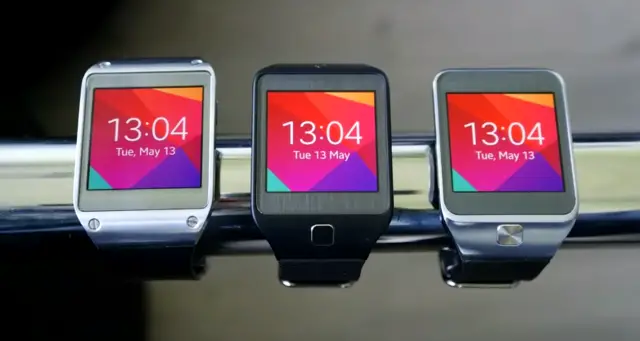
Report: Google, Samsung at crossroads over smart watches
As much as Google and Samsung like to pretend that they have a happy relationship in the public eye, we’re always hearing about some closed doors feelings of theirs. This time, the two sides are said to be butting heads over Samsung’s focus on their Tizen-based smartwatch products in the wake of Android Wear.
Samsung Vice Chairman Jay Y. Lee and Google’s Larry Page reportedly had a heated meeting over the matter earlier this month. Samsung has long had plans to migrate over to Tizen after launching the original Samsung Galaxy Gear with Android, though the operating system wasn’t quite ready for prime time at that point. They didn’t hesitate to take Android out of the original, however, and the new lineup launched with Tizen pre-installed.
We would have thought Google would be alright with it considering Samsung was one of two OEMs to offer the first Android Wear smart watches, but it appears even that isn’t enough to satisfy their wishes. It’s an interesting stance by Google who has largely let OEMs do what they will with Android and doesn’t often have much to say about the other interests of the companies they work with.
One could wonder if Google’s supposed hostile stance against Samsung’s actions is because they’re afraid of seeing Tizen catch steam and threaten Android. While the smart watch market might not be big enough to sweat over right now, they still have to worry about Samsung’s desire to get Tizen up and running on commercial smartphones (the first of which has already been made official).
We wouldn’t worry about top lines like the Note and Galaxy S series getting infused with Tizen instead of Android in the near future. Samsung won’t want to make such drastic changes while they don’t yet have an applications and content ecosystem that can rival the likes of Google Play. But they’re obviously building toward that future, and if these reports are anything to go by it’s something Google certainly doesn’t want to see happen (no matter how much they claim they don’t want Samsung to have a stranglehold on the smartphone market).

